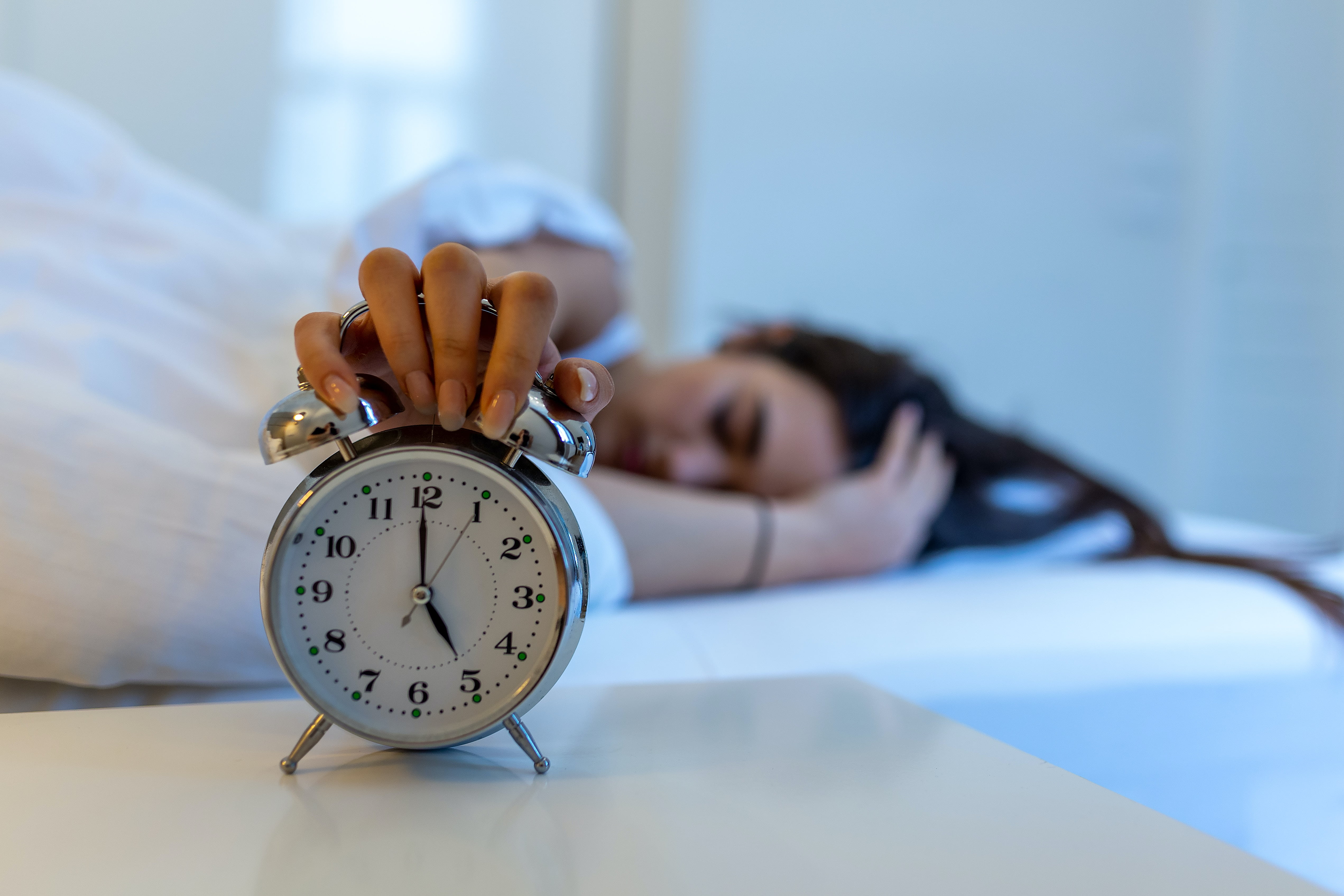Restful sleep: it’s possible with these tips
Sleep is absolutely vital. Body and mind suffer if you don’t get a good night’s sleep. This article shows why restful sleep is so important and which tips can help you sleep better.
Learning to sleep restfully – why is it so important?
Healthy sleep is essential for good health. It helps us to stay healthy and productive. As the bodyruns on a “low flame” during sleep, it reduces blood pressure and heart rate. The body also optimises numerous metabolic processes. During sleep, repair processes take place within the cells and the immune system builds up. Sleep is therefore the best way to regenerate body and mind.
The first symptoms are particularly noticeable if you don’t get a restful night’s sleep or too little sleep. While most people can cope well with a few sleepless nights, persistent sleep problems increase the risk of
– Depression
– obesity
– Cardiovascular problems
– Diabetes mellitus
According to studies, chronic sleep deprivation is also said to increase mortality. It is therefore important not only to get enough sleep, but also to sleep well. However, restful sleep is not a matter of course for many people.
How restful is light sleep?
Experts compare the phases of human sleep to a staircase: once you have overcome the phase of falling asleep, you move step by step from light sleep to deep sleep and lighter REM sleep. Then you go back down to light sleep.
Many people think that light sleep is not really restorative. However, the interplay between the different sleep phases is absolutely vital for the human organism. Restorative sleep is therefore not only possible in the deep sleep phase!
Restorative sleep – how long should you sleep?
Sleep quality and sleep duration go hand in hand. But how long should you sleep to get restful sleep?
People in Germany sleep between 6 and 7 hours on average. In fact, some studies confirm that a sleep duration of 7 hours is optimal. This is said to improve cognitive abilities and also reduce the risks mentioned at the beginning.
Incidentally, it is also not good to sleep much longer than 7 or 8 hours. Too much sleep can favour illnesses and therefore also have negative effects.
The length of sleep depends, among other things, on how old a person is. People over 65, for example, can manage with 5 to 6 hours of sleep. Schoolchildren aged 6 to 13, on the other hand, should sleep for at least 9 to 11 hours, as the brain is undergoing significant development. And teenagers should get 8 to 10 hours of sleep, as the body is busy with hormonal changes.

What promotes sleep?
How well you sleep often depends on your nutrient intake. There are also some active ingredients that can have a sleep-promoting effect. Many can be obtained through diet, but in some cases dietary supplements can also prove helpful.
These should be used in particular if the nutrient requirements cannot be covered by food. Supplements are therefore no substitute for a healthy diet. Kingnature offers high-quality, natural products that can contribute to restful sleep.
But which nutrients and remedies are among the top tips for restful sleep?
Ashwaganda
Ashwaganda – also known as sleep berry root – is particularly popular in Ayurveda. Food supplements such as Relax Vida, which contains ashwaganda among other things, are said to make sleep more restful. How does it do that?
The Ayurvedic plant is said to have a calming and balancing effect. It is also said to make it easier to deal with stress. As stress is one of the basic factors for poor sleep, ashwaganda can have a positive effect on sleep behaviour.
L-tryptophan
L-tryptophan is one of the amino acids and is also said to be able to improve sleep quality. The body needs it to produce the happiness hormone serotonin. This in turn is said to help you fall asleep and transition from light sleep to deep sleep. Serotonin is also said to contribute to a healthy resistance to stress. Serotonin is also converted by the body into melatonin. This is the body’s own sleep hormone, which makes people tired.
The amino acid L-tryptophan can be obtained from food. It is found in soya beans, cocoa beans, peas and cashew nuts. However, the amino acid is usually chemically bound and not readily available to the body. This is why there are also food supplements containing L-tryptophan.
Biotin
Biotin is also known as vitamin B7. It is a water-soluble vitamin that belongs to the group of B vitamins. It is required for various metabolic, digestive, nervous and cardiovascular functions.
Food supplements containing biotin are mainly taken to strengthen hair, skin and nails. However, it is also said to support the metabolism of fatty acids and amino acids. Together with high-quality amino acids, biotin is said to promote restful sleep.
Magnesium
The “relaxation mineral” magnesium is another tip when it comes to restful sleep. It is said to support the nervous system, relax the muscles and thus improve the quality of sleep. The mineral is also said to inhibit the release of stress hormones.
In addition to foods with magnesium, there are a number of foods that contain it:
– Almonds
– sunflower seeds
– pumpkin seeds
– linseed
– sesame seeds
– Cocoa powder
– pulses
Another mineral that should not be missing from a healthy, sleep-promoting diet is zinc. The trace element has a reputation for being able to regulate sleep.
Vitamins
It’s no secret that an optimal intake of nutrients is essential for many processes in the body. However, nutrients such as vitamins can also have an effect on restful sleep. The following vitamins are particularly important:
– Vitamin B1(thiamine): This vitamin is said to be able to improve sleep behaviour.
– Vitamin D: Insufficient vitamin D levels can lead to sleep disorders.
Vitamin D is found in oily fish such as salmon, mackerel and herring. Mushrooms and egg yolk are also common sources of vitamin D. Vitamin B1, on the other hand, is mainly found in plant-based foods. Rice, cereals, potatoes and pulses supply the body with thiamine.
No restful sleep – what to do?
There are a few tips that, in addition to the right diet, can contribute to restful sleep. A lot depends on your lifestyle when it comes to sleep duration and quality.
Reduce light
The darker it is in the bedroom, the easier it is for the body to produce the sleep hormone melatonin. You should therefore avoid a lot of light before going to sleep. This also applies to smartphones, laptops, etc. The blue light rays from digital devices delay the production of melatonin enormously. This can shift the sleep-wake rhythm and make you feel even more tired in the morning.
The right temperature
Restful sleep also has something to do with the room temperature. If it is too cold or too warm, this can affect the quality of sleep. Experts recommend an optimum temperature of 18-21 °C. This is because the body clock controls body temperature, among other things.
Relaxation
An evening routine that helps you relax is essential for restful sleep. One of the reasons many people can’t sleep well is because their thoughts are constantly on the next to-do list. It is better to visualise everything you have achieved that day. If you clear your head in the evening, you can usually sleep better. Many people try yoga or meditation. However, activities such as journaling have also proven to be effective in some cases.
Eat and drink properly before sleep
To optimally prepare the body for a restful night’s sleep, you should not eat a heavy meal in the evening. An easily digestible dinner is much better. This is because the metabolic process can disrupt sleep.
Something similar applies to drinking: reduce your fluid intake before going to bed. The urge to go to the toilet is one of the most common reasons why people’s sleep is disturbed.
Alcohol should be avoided completely. Although it makes you tired at first, you wake up more often during sleep. As a result, alcohol also reduces the regeneration that should take place during the night.
Sport
Sport is taboo directly before going to bed. This is because dopamine and endorphins are released and the body temperature changes. Nevertheless, it is not a good idea to avoid sport altogether.
Regular sport and exercise contribute to generally better health. However, the best time for this is during the day rather than in the evening!
Conclusion: There are tips for restful sleep!
Anyone who suffers from sleep problems usually notices this clearly in their mind and body. However, tips for restful sleep can reduce the symptoms. These include taking in the right nutrients and a sensible evening routine. There are also plants that have a sleep-promoting effect and can ensure restful sleep.

